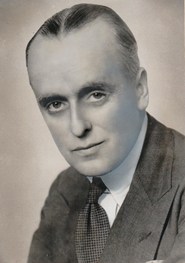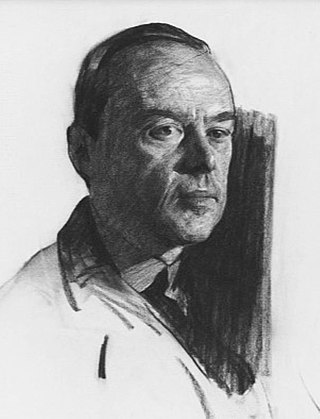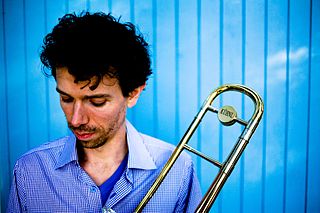
J. J. Johnson, born James Louis Johnson and also known as Jay Jay Johnson, was an American jazz trombonist, composer and arranger.

James Tenney was an American composer and music theorist. He made significant early musical contributions to plunderphonics, sound synthesis, algorithmic composition, process music, spectral music, microtonal music, and tuning systems including extended just intonation. His theoretical writings variously concern musical form, texture, timbre, consonance and dissonance, and harmonic perception.
Lejaren Arthur Hiller Jr. was an American composer.

Frank Bridge was an English composer, violist and conductor.

Eric Francis Harrison Coates was an English composer of light music and, early in his career, a leading violist.

John Alden Carpenter was an American composer. Carpenter's compositional style was considered to be mainly "mildly modernistic and impressionistic"; many of his works strive to encompass the spirit of America, including the patriotic The Home Road and several other jazz-inspired works. He was among the first classical composers to incorporate elements of jazz and ragtime in their pieces.
Philip Lionel Corner is an American composer, trombonist, alphornist, vocalist, pianist, music theorist, music educator, and visual artist.
Frank Denyer is a composer. His music uses a combination of conventional instruments and new, unusual, and structurally modified instruments. Partly due to his studies of non-Western music, much of Denyer's music is microtonal.

Walter Johannes Damrosch was a Kingdom of Prussia-born American conductor and composer. He was the director of the New York Symphony Orchestra and conducted the world premiere performances of various works, including Aaron Copland's Symphony for Organ and Orchestra, George Gershwin's Piano Concerto in F and An American in Paris, and Jean Sibelius' Tapiola. Damrosch was also instrumental in the founding of Carnegie Hall. He also conducted the first performance of Rachmaninoff's Piano Concerto No. 3 with the composer himself as soloist.
Douglas Yeo is an American bass trombonist who played in the Boston Symphony Orchestra from 1985 to 2012, where he held the John Moors Cabot Bass Trombone Chair. He was also on the faculty of the New England Conservatory. In 2012 he retired from the BSO and accepted a position as professor of trombone at the Arizona State University School of Music, a position he held until 2016. In 2019, he was appointed to the faculty of Wheaton College (Illinois).

Emory Brace Remington (1892–1971) was a trombonist and music teacher. His unique method made him one of the most well-known and influential trombone educators in history. He was a member of the Rochester Philharmonic Orchestra from 1923 to 1949, and on the faculty of the Eastman School of Music in Rochester, NY from 1922 until his death in 1971.

The Royal Manchester College of Music (RMCM) was a tertiary level conservatoire in Manchester, north-west England. It was founded in 1893 by the German-born conductor Sir Charles Hallé in 1893.
Ralph C. Sauer is an American trombonist, arranger and teacher. He was Principal Trombonist of the Los Angeles Philharmonic for 32 years.
Arthur John Baron is an American jazz trombonist. He also plays didgeridoo, conch shell, penny-whistle, alto and bass recorder, and tuba.

James Hewitt was an American conductor, composer, and music publisher. Born in Dartmoor, England, he was known to have lived in London in 1791 and early 1792, but went to New York City in September of that year. He stayed in New York until 1811, conducting a theater orchestra and composing and arranging music for local ballad operas and musical events. He also gave lessons and sold musical instruments and publications in his "musical repository".

The Bob Cole Conservatory of Music is the school of music at California State University, Long Beach. In March 2008, the music department was renamed the Bob Cole Conservatory of Music in honor of an endowment gift of $16.4 million from the estate of Robert "Bob" Cole. Cole, a Long Beach real estate investor, long-time music lover, and amateur pianist, died in 2004. Following its disbursement, the gift will benefit the students of the conservatory in the form of scholarships and other awards.
Larry Gray is a Chicago musician known for his compositions and skill on the double bass and cello. His primary teachers were Joseph Guastafeste, longtime principal bassist of the Chicago Symphony Orchestra, and cellist Karl Fruh.
Michael Patrick Dease is an American jazz tenor and bass trombonist, composer and producer. He also plays saxophone, trumpet, flugelhorn, bass and piano.
"Let Evening Come" is a poem by Jane Kenyon.

Ryan Keberle is an American trombone player, composer, arranger, and educator. Described by The New York Times as a "trombonist of vision and composure", he leads Ryan Keberle & Catharsis, his All Ears Orchestra, the Big Band Living Legacy Project and co-leads the international chamber jazz ensemble, Reverso. Keberle has performed with David Bowie, Maria Schneider, Wynton Marsalis, Darcy James Argue, Alicia Keys, and Sufjan Stevens, among others, and has appeared on seven Grammy Award-winning records.










